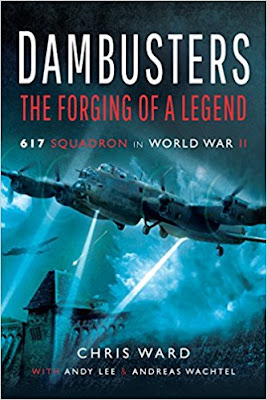617 Squadron of 5 Group RAF Bomber Command was without doubt the most famous RAF Squadron in World War II.
It was formed to carry out the precision low-level attack on the Mohne, Eder and Sorpe Dams, using Barnes Wallaces newly developed rotating mine, now commonly referred to as The Bouncing Bomb. The raid was a tremendous success, although at great cost to the squadron, and proved to be a great moral booster for the war-weary British public.
Guy Gibson VC was tasked with organising the formation and training of the new squadron and the Dambusters have been national heroes ever since. Although several books have previously been written on this epic adventure, this is a new look at their first raid and then the long and envious history of 617 until the end of the war.
This new version of the Dams raid within the book, pays particular attention to timings, as it is easy to overlook the fact, that this was a complex three-phase operation, spanning 8 hours and 47 minutes, with action occurring simultaneously at widely dispersed locations. It also attempts to settle finally the circumstances of the losses, by examining the testimony of eyewitnesses on both sides, and presenting arguments to help readers decide for themselves what actually happened where previous accounts are contradictory or at variance.
In the later war years 617 suffered greatly during an attack on the Dortmund-Ems Canal but recovered and their list of priority special targets then included the German missile research plant at Peenemunde, Hamburg, the U boat pens at La Pallice and the sinking of the battleship Tirpitz. The legendary Leonard Cheshire VC led the Squadron for much of that period.
This newly researched account of 617s wartime record contains many first-hand accounts from squadron members and also German and Dutch witnesses who were present at some of the most spectacular raids and have explained many of the mysterious losses of the Squadrons aircraft. Lengthy appendices contain a Roll of Honour, Commanders, Airfields and aircraft, Operational statistics and Aircraft Histories.

No comments:
Post a Comment